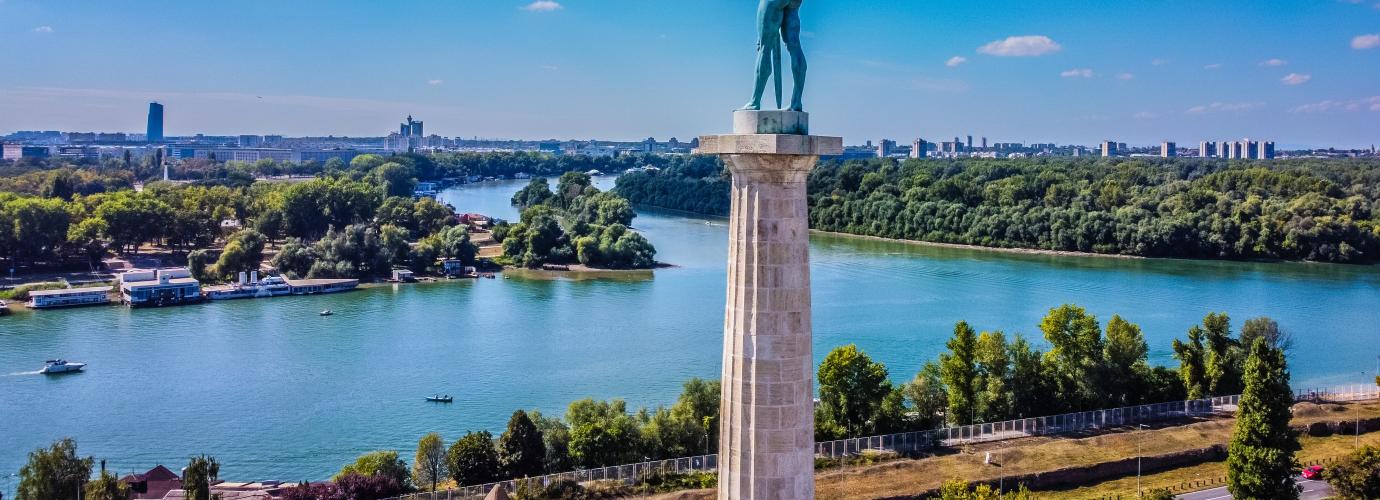Main funding principles
According to the Strategy for the Development of Adult Education, adult education in Serbia has several general social objectives which include enhancing the country’s educational structure, increasing employability, reducing poverty and forming the basis for economic development. It also aims to improve the flexibility of the labour force and enhance the overall quality of life. The need for re-entering the education system arises from a fairly low educational structure of the general population, high unemployment rates, low educational structure of the working population and stagnating population growth.
Although adult education is primarily implemented in public primary and secondary schools, it can also be organised in other institutions licenced for the implementation of adult education study programmes. Such institutions may include public agencies, public companies, employment agencies, business organisations and other entities.
Adult education programmes are implemented in government-funded primary and secondary schools as a regular part of their practice. However, they can also be organised within other organisations established for the purpose of providing additional training and retraining. Adults participating in these training programmes are individuals aged 15 and over at the primary education level, and those aged 17 and over at the secondary education level.
According to the Adult Education Survey 2022, the participation rate of adults (25–69 years) in formal or non-formal education or training was 19.9% (The Statistical Office of the Republic of Serbia, 2023), and it is still significantly lower than the average participation rate of the European Union (45.1%). Women (21.3%) are more represented than men (18.4%) in some form of education and training in the 12-month period preceding the survey. Unlike young people, adults tend to participate more often in non-formal education and training (17.4%), while only 3.7% of them participate in formal education. Women and men who are employed and completed high school most often participate in non-formal education according to their level of education and work status.
According to the Annual Plan for Adult Education in the Republic of Serbia for 2023, adult education programmes have been conducted in 64 primary schools under the jurisdiction of 15 local school authorities. The Functional Elementary Education for Adults (FEEA) had 5,477 adult participants in the 2022/2023 school year with 841 teachers and 76 andragogic assistants employed. Notably, out of the 5,477 participants, 4402 participants were from the Roma population (80.37%) as part of the monitoring of improvement measures related to the position of minorities. The implementation of the FEEA programme activities had a budget which amounted to 605,635,000.00 RSD.
In 2023, formal secondary education for adults was implemented in 139 secondary schools under the jurisdiction of 16 local school authorities requiring a total of 6,750,000.00 RSD in funds for the 2022/2023 school year.
Regarding the retraining programmes in 2023, a total of 25,074 adults were planned to participate on the territory of 16 local school authorities. These activities were financed by the participants themselves with their own funds.
Fees Paid by Learners
According to the Law on Adult Education, adult learners are exempt from paying fees for participation in primary education programmes and the first occupation training (which is part of the third cycle of Functional Elementary Education for Adults (FEEA)). For all other levels and programmes, fees are determined by respective schools and organisations.
The state budget is the primary source of funding for formal adult education (primary or secondary school). Additional training and retraining is predominantly financed by various entities such as companies, employers, employees, other clients and participants.
Financial Support for Adult Learners
There are no special schemes of financial support in the form of loans, scholarships or other state measures available in formal adult education system. Some schemes of financial support are available for some adults who are involved in some non-compulsory programmes. Namely, adults who participate in labour market training created by the National Employment Service (NES) are eligible to receive financial support. During the training, in accordance with the contract, the NES pays some of the training provider’s expenses (including the implementation of the training programme) while the trainee/eligible adult receives the monthly amount of up to 7,000.00 RSD as financial support to cover transportation costs and insurance contributions in case of work-related injuries).
Employers can request another scheme of financial support for unemployed adults who do a specific job. The National Employment Service pays:
-
participation in financing the training costs to the employer;
-
monthly financial support of 16,000.00 RSD and transportation costs to an unemployed adult;
-
monthly financial support equivalent to 20% of the minimum wage fixed in accordance with labour regulations, transportation costs, and a personal assistant if necessary to the unemployed adult with a disability.
Subsidies for private providers
Private education institutions determine their fees based on the types of programmes offered and training staff.

